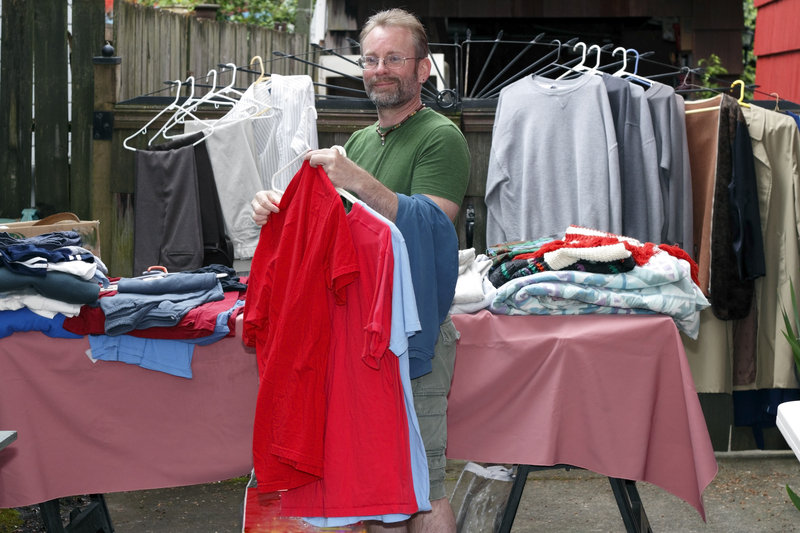Recycling Education: Equipping Schools with the Best Practices
Posted on 14/09/2025
Recycling Education: Equipping Schools with the Best Practices
Recycling education plays a vital role in nurturing environmentally responsible citizens. Through comprehensive and dynamic recycling programs, schools can foster sustainable habits among students, teachers, and staff that last a lifetime. In today's world, where environmental concerns are front and center, equipping schools with the best recycling education practices is not just beneficial--it's essential. This article delves deep into the best recycling education strategies, underscores their importance, and provides actionable steps for educators committed to environmental stewardship.

Why Is Recycling Education Critical in Schools?
Inspiring a new generation to care for the planet starts with early education. Schools are uniquely positioned to instill positive recycling behaviors and spread awareness about waste reduction. Here's why integrating recycling education in schools is so critical:
- Forms Lifelong Habits: Children who learn about recycling grow up with eco-conscious behaviors that they carry into adulthood.
- Reduces School Waste: Sustainable waste management within schools significantly decreases the amount of garbage sent to landfills.
- Enhances Environmental Literacy: Recycling programs help students understand broader topics such as climate change, pollution, and renewable resources.
- Empowers Student Leadership: Students become champions of sustainability in their schools, homes, and communities.
- Supports Curriculum Goals: Activities centered around recycling promote critical thinking, teamwork, and responsibility.
Current Challenges in School Recycling Programs
Despite its importance, recycling education in schools faces several hurdles, including a lack of resources, insufficient staff training, and inconsistent student engagement. Many schools struggle with limited funding for green initiatives, and recycling bins are often poorly labeled or placed in inconvenient locations.
- Awareness Gaps: Many students and faculty may not know what can or cannot be recycled.
- Infrastructure Issues: Inadequate or inconvenient recycling stations decrease participation rates.
- Contamination: Improper sorting can render entire batches of recyclables unusable.
- Motivation: A lack of visible results may make recycling seem pointless to students.
It's clear that schools must adopt effective recycling education practices to overcome these challenges and foster an eco-friendly culture.
Essential Components of Effective Recycling Education in Schools
1. Curriculum Integration
One of the most impactful ways to promote recycling education in schools is by integrating waste management topics into the curriculum across various subjects.
- Science: Teach the environmental impact of waste and recycling processes.
- Social Studies: Explore the role of recycling in different societies and historical contexts.
- Math: Calculate waste generation statistics, recycling rates, and environmental savings.
- Language Arts: Encourage persuasive writing or speeches about the importance of recycling.
Cross-curricular connections reinforce the importance of recycling while meeting learning objectives across disciplines.
2. Visible and Accessible Recycling Infrastructure
A successful recycling program requires clear and accessible infrastructure. Recycling bins should be:
- Clearly labeled with images and explanations of what can be recycled.
- Color-coded to differentiate recycling from landfill and compost bins.
- Conveniently placed in high-traffic areas such as cafeterias, classrooms, and hallways.
Periodic assessments and adjustments to bin placement and labels maintain high participation rates.
3. Hands-On Learning Experiences
Hands-on activities are a cornerstone of effective school recycling education. These experiences foster deeper understanding and personal investment. Examples include:
- Classroom Sorting Games: Interactive sorting exercises with real or simulated waste items.
- Recycling Center Field Trips: Students witness firsthand what happens to recyclable materials after collection.
- Upcycling Projects: Creative reuse of waste materials for art, science, or practical classroom supplies.
- Composting: Create a composting project in the school garden to teach about organic waste recycling.
4. Student Leadership and Green Teams
Empowering students to lead recycling efforts creates a sense of ownership and pride. Establishing a student green team can significantly enhance program success. Responsibilities for green teams might include:
- Monitoring recycling stations for contamination
- Educating peers about proper recycling practices
- Organizing school-wide recycling competitions
- Reporting progress to school administrators and the community
*Studies show that peer-led initiatives are more likely to result in habit change among students!*
5. Regular Training and Engagement Opportunities for Staff
Teachers and staff are essential role models for students. Schools must regularly train staff in the latest recycling procedures and provide engagement opportunities such as:
- Workshops on recycling and waste management
- Partnerships with local environmental organizations
- School-wide sustainability events
A unified staff approach ensures consistent messaging and reinforces the entire school community's commitment.
Best Practices for Recycling Education Programs in Schools
The following best practices ensure that school recycling education programs are effective, sustainable, and engaging:
Set Clear Goals and Measure Progress
An effective recycling program starts with clear, measurable goals:
- Reduce waste by a specific percentage over the school year
- Increase recycling rates within targeted areas (e.g., cafeteria, classrooms)
- Reduce contamination in recycling bins by a set amount
Track progress through regular waste audits and publicize results to keep everyone motivated.
Engage Parents and the Wider Community
Extending recycling education beyond the classroom amplifies its impact. Encourage parents to participate by:
- Sending home recycling tips and newsletters
- Hosting community recycling events or drives
- Inviting guest speakers from local environmental organizations
An involved community reinforces the importance of recycling at home, not just at school.
Utilize Technology and Digital Tools
Digital resources can take recycling education to the next level:
- Interactive games and videos that teach sorting techniques and recycling facts
- Online progress dashboards to track class or school-wide recycling efforts
- Mobile apps offering waste reduction challenges or rewards
*Integrating technology makes recycling education more engaging and accessible for digital-native students.*
Incorporate Recognition and Rewards
Incentives can be powerful motivators. Recognize classes or students who demonstrate commitment to recycling by:
- Offering certificates or eco-friendly prizes
- Celebrating successes in assemblies or school newsletters
- Allowing winning teams to choose new sustainability projects for the school
Positive reinforcement encourages long-term behavioral change.
Connect Recycling Education to Broader Sustainability Initiatives
Recycling should be one part of a comprehensive school sustainability strategy, which might include:
- Energy conservation measures
- Water saving initiatives
- School gardens and outdoor classrooms
A holistic approach helps students understand the interconnectedness of environmental issues and reinforces the value of responsible resource management.
Proven Models of School Recycling Education
Several schools and districts have set outstanding examples of how recycling education can drive sustainable change. Here are a few:
Eco-Schools Program
This international program recognizes schools for excellence in sustainability, with waste management and recycling as core criteria. Students participate in green audits, develop action plans, and engage the broader community. Recognition as an Eco-School boosts visibility and fosters a strong culture of sustainability.
Green Ribbon Schools (U.S.)
The U.S. Department of Education's Green Ribbon Schools program honors schools that reduce their environmental impact. Many awardees have pioneered comprehensive recycling and waste diversion programs, demonstrating outstanding results in their communities.
Student-Led Initiatives
In Australia, the Nude Food Movement encourages students to bring no-waste lunches, dramatically cutting school waste. Meanwhile, UK schools involved in the Eco-Schools program have student green teams leading composting, electronics recycling, and clothing swap projects.

Action Plan: How Schools Can Start or Improve Their Recycling Education
Whether your school is just launching a recycling program or looking to enhance an existing one, these steps provide a helpful roadmap:
- Assess the Current Situation: Conduct a waste audit and survey students and staff for baseline attitudes and behaviors.
- Set Realistic, Ambitious Goals: Involve the entire school community in setting and publicizing clear objectives.
- Develop Policies and Assign Roles: Adopt policies for recycling in classrooms, offices, and cafeterias. Appoint staff or student recycling coordinators.
- Provide Training: Schedule workshops and regular refresher sessions for both staff and students.
- Install and Maintain Quality Infrastructure: Use clear labels and consistent color-coded bins in all areas.
- Engage and Educate: Incorporate recycling into curriculum, assemblies, and extracurricular activities.
- Monitor and Share Results: Conduct regular audits, celebrate successes, and adjust where necessary.
- Partner with the Community: Collaborate with local government, recycling centers, and nonprofits.
- Promote Continuous Improvement: Keep recycling education fresh with new campaigns, competitions, and innovations.
Conclusion: Building a Greener Future Through Recycling Education
Equipping schools with the best recycling education practices is essential for creating a more sustainable future. By integrating recycling knowledge and skills into the fabric of school life, we inspire students to become environmental stewards, reduce waste, and foster positive change in their communities. With the right strategies, curriculum, and enthusiasm, every school can become a beacon of sustainability--it all begins with education.
*Embrace recycling education in your school, and you'll sow seeds for a cleaner, greener world for generations to come.*



